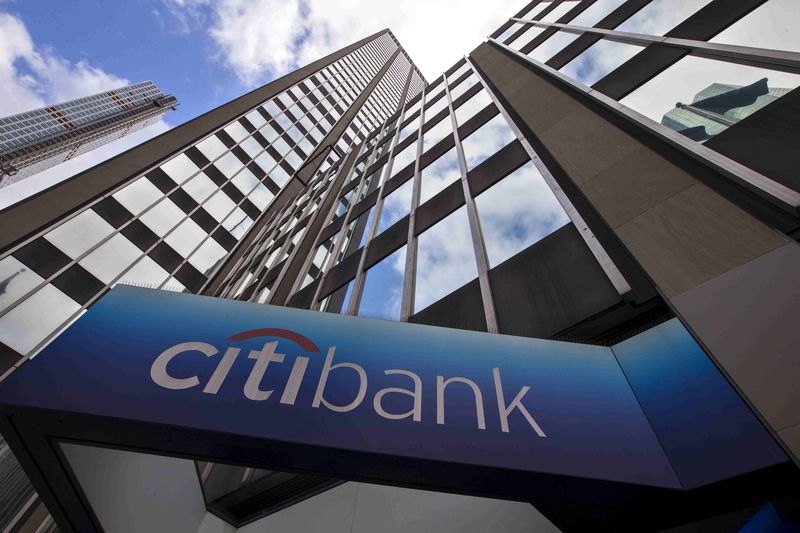Investing
Wall Street tumbles as Credit Suisse sparks fresh bank selloff

© Reuters. FILE PHOTO: The Wall Street entrance to the New York Stock Exchange (NYSE) is seen in New York City, U.S., November 15, 2022. REUTERS/Brendan McDermid
By David Carnevali
NEW YORK (Reuters) – U.S. stocks fell sharply on Wednesday as turbulence at Credit Suisse revived fears of a banking crisis, eclipsing bets of a smaller interest U.S. rate hike in March following weak economic data.
Credit Suisse’s troubles piled more pressure on the banking sector, undoing relief from emergency measures taken by U.S. authorities to prevent contagion after the collapse of SVB Financial and peer Signature Bank (NASDAQ:).
Some investors believe aggressive U.S. interest rate hikes by the Federal Reserve caused cracks in the financial system.
“They’ve tightened at the steepest, most dramatic rate that we’ve seen since 1980 and so I think this could be the opportunity for them to pause,” said Cresset Capital CIO, Jack Ablin.
U.S.-listed shares of Credit Suisse hit a record low, after its largest investor said it could not provide more financing to the bank, starting a rout in European lenders and pressuring U.S. banks as well.
“Anything negative from any highly visible institution, in this case Credit Suisse, is going to have ripple effects across the financial sector,” said Michael James, managing director of equity trading at Wedbush Securities.
Data showed U.S. retail sales fell 0.4% last month after 3.2% growth in January. Economists polled by Reuters had expected a contraction of 0.3%.
A separate report showed U.S. producer prices unexpectedly fell in February, offering some hopeful signs in the fight against inflation a day after another reading showed moderation in consumer inflation last month.
This fueled investor hopes the Fed might slow its rate hikes. U.S. Treasury yields fell, with traders now expecting equal chances of a 25-basis-point rate hike and a pause at the Fed’s March meeting.
First Republic Bank (NYSE:) fell 18.82% while PacWest Bancorp slid 18.46%. Trading was halted several times for volatility, a day after shares of the battered banks staged a strong recovery.
Shares of Western Alliance (NYSE:) Bancorp rose 8.84% and bank and brokerage Charles Schwab (NYSE:) Corp rose nearly 3.99%. Both stocks reversed early declines.
“In the financial markets, you just have to look at the ones that could weather through and don’t have as much investment risk on their on their portfolio,” said Jeffrey Carbone, managing partner at Cornerstone Wealth.
Big U.S. banks including JPMorgan Chase & Co (NYSE:), Citigroup (NYSE:) and Bank of America Corp (NYSE:) fell between 1% and 6%.
The KBW regional banking index slid 2.28%, while the banking index dropped 4.13%.
Most of the 11 major S&P 500 sectors were in the red, with energy down 5.86% and leading declines.
The fell 513.75 points, or 1.6%, to 31,641.65, the S&P 500 lost 56.26 points, or 1.44%, to 3,863.03 and the dropped 85.52 points, or 0.75%, to 11,342.63.
Weighing on the Dow, Boeing (NYSE:) Co shed 5.73% a day after the company said its aircraft deliveries fell in February.
Declining issues outnumbered advancing ones on the NYSE by a 4.81-to-1 ratio; on Nasdaq, a 3.05-to-1 ratio favored decliners.
The S&P 500 posted 1 new 52-week highs and 35 new lows; the Nasdaq Composite recorded 10 new highs and 344 new lows.
Read the full article here

-

 Personal Finance6 days ago
Personal Finance6 days agoTop personal finance New Year's resolutions for 2025
-

 Passive Income7 days ago
Passive Income7 days agoWhy Emotional Intelligence Is the Key to High-Impact Leadership
-

 Passive Income4 days ago
Passive Income4 days agoJoin the Highest-Growing Industry in 2025 With This $60 Cybersecurity E-Learning Bundle
-

 Side Hustles7 days ago
Side Hustles7 days ago3 Key Ways to Train Your Franchisees
-

 Make Money7 days ago
Make Money7 days agoHow the Rich Build Wealth That Lasts: 8 Tactics
-

 Side Hustles7 days ago
Side Hustles7 days ago12 Big Ideas From Business Books Published In 2024
-

 Investing7 days ago
Investing7 days agoWork Better from Anywhere with This Portable Touchscreen Monitor
-

 Side Hustles2 days ago
Side Hustles2 days agoAI Agents Are Becoming More Humanlike — and OpenAI Is Launching a New One in January. Are Entrepreneurs Ready to Embrace the Future?


















